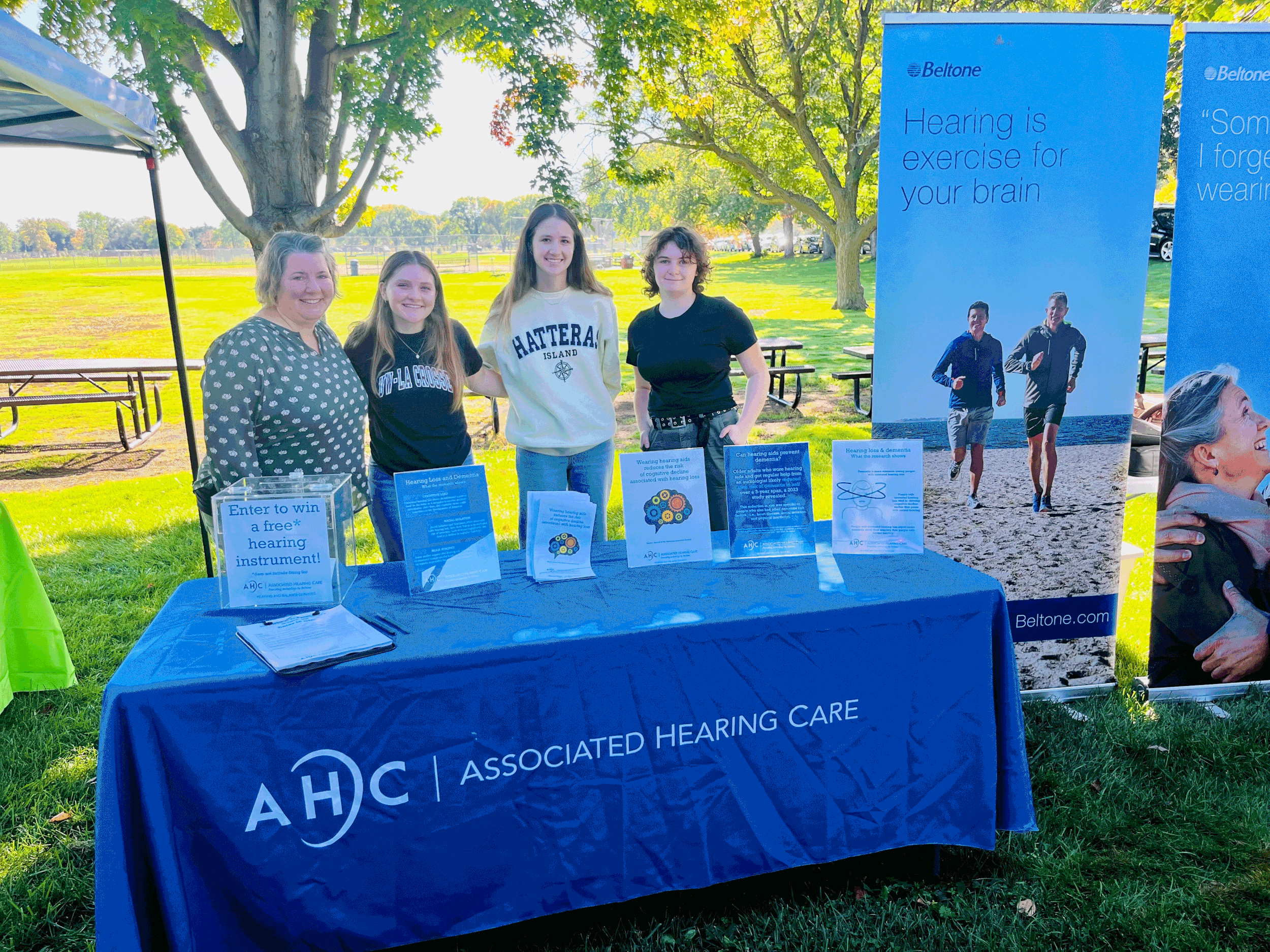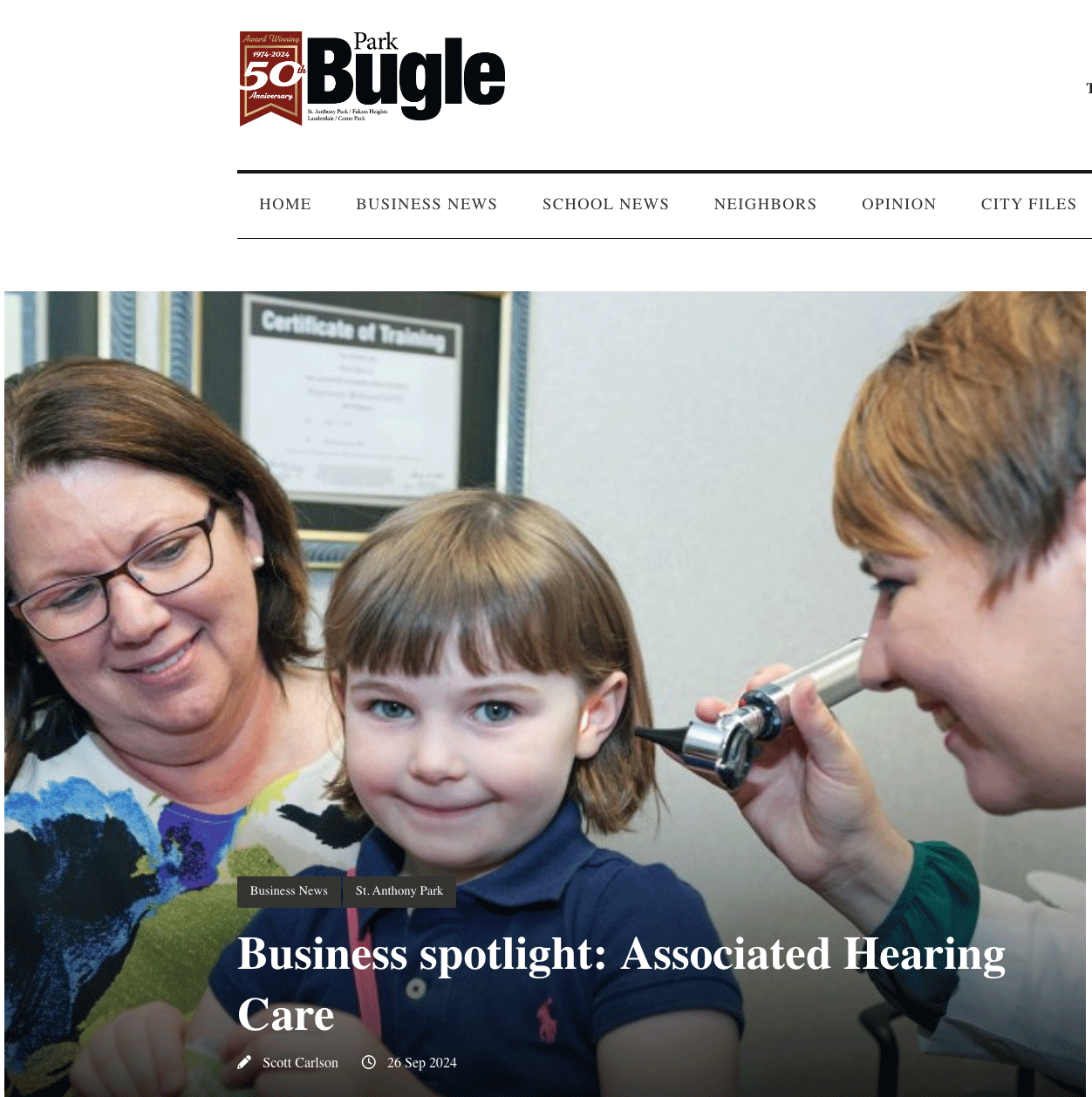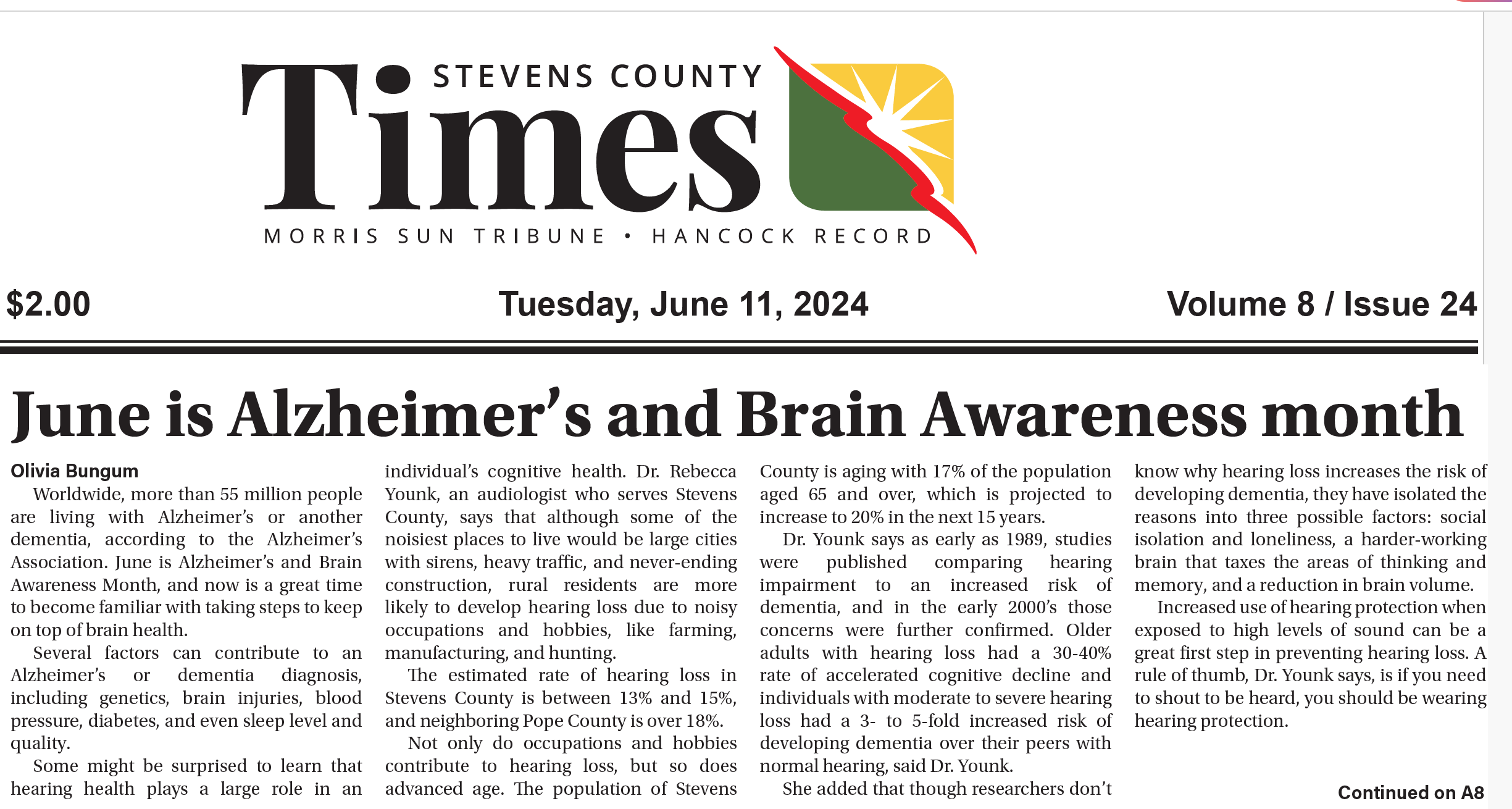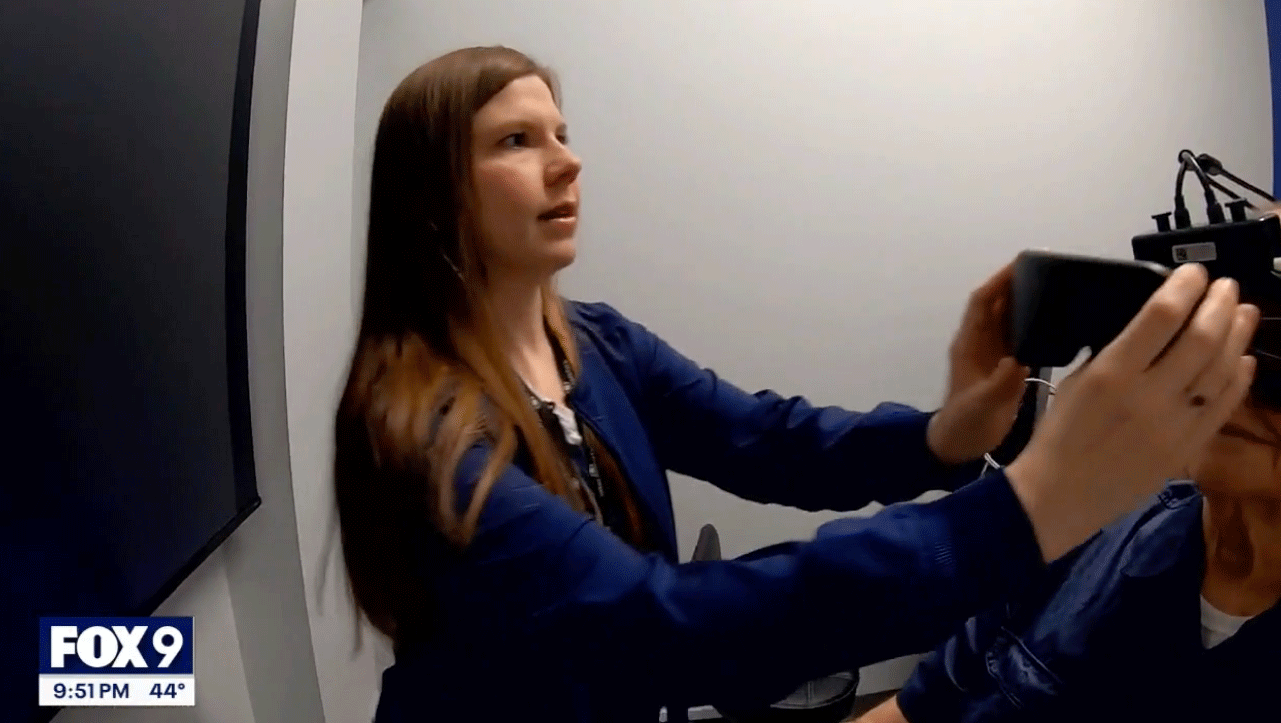April 27, 2025 - Saint Paul Pioneer Press - St. Paul audiology specialist finds balance issues are big business
As an audiologist, Rebecca Younk holds a doctorate in the sensitive workings of the ear, making her 11 clinics and offices across Minnesota important bunkers in the war on hearing loss. Increasingly, her St. Paul headquarters also is providing a foothold in a burgeoning, lesser-known battle against falling down.
Americans are tumbling more — an unusual epidemic that, for obvious reasons, hits the elderly especially hard. Researchers have attempted to pin blame on everything from digital distractions like smartphones to footwear, obesity and the side effects of certain medications. Diabetes, for instance, can cause neuropathy, or a loss of feeling in the nerves, especially in the feet and legs. That’s a dangerous burden for a rapidly aging population.
“The science of balance is new and evolving,” said Younk, who for the past 10 years has run Associated Hearing Care, which is still better known for adjusting hearing aids than for addressing dizziness or vertigo. “Balance is often controlled in the ear. Our balance organ is the same structure as the hearing organ. (But) there is no one reason someone falls.”
December 13, 2024 - KSTP Channel 5 News - Giving a toy as a gift this holiday season? Make sure it isn't too loud and doing damage to a loved one's hearing!
Rebecca Younk Au.D. from Associated Hearing Care in Saint Paul was on KSTP 5 to talk about what to look out and listen for when choosing toys that are safe for your hearing.
Watch the video at the link: https://kstp.com/kstp-news/top-news/sound-can-damage-hearing-experts-say-frequent-use-of-noisy-toys-by-children-can-cause-hearing-loss/
Protect your ears: Hunters urged to prioritize hearing safety amid hunting season - December 3, 2024 Stevens County Times by Olivia Bungum
As hunting season progresses, safety should be at the top of the mind for every hunter and family member of a hunter. Gun, weather, terrain and animal safety are commonly at the top of the mind when thinking about hunting safety, but one that may not get as much attention is hearing safety.
Between 70% and 80% of hunters do not wear ear protection while hunting, said Dr. Rebecca Younk, audiologist serving Stevens County. Without the use of hearing protection, hunters are more susceptible to high-frequency hearing loss, which is often referred to as “hunter’s ear,” she added.
High-intensity sounds, like gunfire, damage the fine structures in the inner ear. These structures, called “hair cells,” can lead to hearing loss and tinnitus when damaged. One gunshot is all it can take to cause damage to these hair cells, and once the damage occurs, they cannot be regenerated which will lead to permanent hearing loss. Younk says that one study of hunters showed that 30% of individuals reported fair to poor hearing, and 50% reported ringing in their ears.
Younk added that evidence of hearing loss due to firearm use is frequently seen on hearing tests.
So, what kind of hearing protection will have the benefits of protecting the ears from loud noises, but also preserve the ability to hear environmental noises while hunting? Hearing protection that will let them hear approaching game and hunting companions, but still suppress the intense sound of the firearm are the main goals hunters look for in hearing protection, and for these goals, electronic hearing protection is recommended, Younk said. Electronic hearing protection amplifies environmental sounds in addition to suppressing gunfire.
Younk recommends looking for a noise reduction rating (NRR) of at least 20dB, but 25dB or greater is optimal. Some electronic options are less expensive, like over-the-ear, which can lighten the load on your wallet but still provide effective hearing protection.
"There are also models with Bluetooth technology which will connect to a smartphone and allow for phone calls and audio streaming all while sitting in your deer blind at dawn" said Younk. These are often under $100.
There are more expensive options that provide in-the-ear protection and are less bulky. They still amplify environmental sounds while suppressing loud sounds, but if the in-the-ear fit is not right they won't provide as much noise reduction, and won't be as effective at preventing hearing loss. These devices are typically right around the $100 mark.
Younk says that the Cadillac choice for hearing protection for hunters is a custom-made, in-the-ear electronic hearing protection device. She adds that they are the most expensive option, often clocking in at around $1,000, but they may be well worth it for hunters with existing hearing loss. These devices have an NRR rating of around 25dB, and can be programmed to a hunter's hearing loss to amplify soft environmental sounds to make up for the existing hearing loss, but still suppress loud sounds.
One Audiologist's Advice for Hunters (from Dr. Younk)
• If you have a budding hunter at home, start them early with over-the-ear hearing protection. This will build good habits from the start and hopefully keep them from developing tinnitus or hearing loss later in life.
• If you are concerned about your hearing or have tinnitus, make an appointment with an Audiologist to get your hearing tested and talk to them about the best hearing protection to use when hunting.
• If you have hearing loss and are an avid hunter, consider getting a set of custom-made electronic hearing protection to use when you hunt. For the most part, prescription hearing aids are designed to amplify speech with some noise reduction, but not typically enough to protect hearing from the intense sound a firearm makes, especially in a hunting blind.
• Download a sound level meter on your smartphone and measure the sound from your firearm. The intensity of the sound can change depending on the type of gun, the ammunition, and the environment the weapon is fired in.
• The American Speech, Language, Hearing Association (ASHA) recommends using both earplugs and earmuffs when you are exposed to levels above 105 dB for 8 hours or more or if you are exposed to impulse sounds of 14odB or greater. For hunter's practicing at a gun range, double hearing protection is always recommended.
Christmas is coming and electronic hearing protection makes a great stocking stuffer for all ages.
Channel 5 Eyewitness News (KSTP) visits our Saint Paul clinic
October 15. 2024 - KSTP Changes in Hearing Aid Coverage
We were featured by Channel 5 Eyewitness News (KSTP) in their story on a Minnesota mandate for increased coverage of hearing instruments by health insurers. Audiologists Dr. Rebecca Younk and Dr. Samantha Kohnen helped explain some of the increased access to hearing care for Minnesotans.
October 2, 2024 - White Bear Lake Best of the Press
Our White Bear Lake office was voted Best of the Press by readers of the White Bear Press. This is our 2nd year in a row winning and we couldn’t be prouder of Dr. Maerz and the help she provides patients - congratulations!
September 28 2024 - Winona Walk to End Alzheimers
We were so happy to sponsor and be a part of the 2024 Walk to End Alzheimers in Winona!
This was a great opportunity to talk with people about how getting help with your hearing can help reduce the rate of cognitive decline.
September 26, 2024 - We are honored to have been the September Business Spotlight in the September issue of the Park Bugle!
From the article: The strongest predictor of hearing loss is age. It is estimated that 22% of adults 55–64 have hearing loss and that jumps to 55% for those who are over the age of 75.
Given the increased awareness of the negative impacts of hearing loss on brain health and the positive outcomes for people when they wear hearing aids, we are seeing an increasing demand for hearing care services.
Read the entire article: https://www.parkbugle.org/business-spotlight-associated-hearing-care/
June is Alzheimer’s and Brain Awareness month - June 11, 2024 -Olivia Bungum - Stevens County Times
Worldwide, more than 55 million people are living with Alzheimer’s or another dementia, according to the Alzheimer’s Association. June is Alzheimer’s and Brain Awareness Month, and now is a great time to become familiar with taking steps to keep on top of brain health.
Several factors can contribute to an Alzheimer’s or dementia diagnosis, including genetics, brain injuries, blood pressure, diabetes, and even sleep level and quality.
Some might be surprised to learn that hearing health plays a large role in an individual’s cognitive health. Dr. Rebecca Younk, an audiologist who serves Stevens County, says that although some of the noisiest places to live would be large cities with sirens, heavy traffic, and never-ending construction, rural residents are more likely to develop hearing loss due to noisy occupations and hobbies, like farming, manufacturing, and hunting.
The estimated rate of hearing loss in Stevens County is between 13% and 15%, and neighboring Pope County is over 18%.
Not only do occupations and hobbies contribute to hearing loss, but so does advanced age. The population of Stevens County is aging with 17% of the population aged 65 and over, which is projected to increase to 20% in the next 15 years.
Dr. Younk says as early as 1989, studies were published comparing hearing impairment to an increased risk of dementia, and in the early 2000’s those concerns were further confirmed. Older adults with hearing loss had a 30-40% rate of accelerated cognitive decline and individuals with moderate to severe hearing loss had a 3- to 5-fold increased risk of developing dementia over their peers with normal hearing, said Dr. Younk.
She added that though researchers don’t know why hearing loss increases the risk of developing dementia, they have isolated the reasons into three possible factors: social isolation and loneliness, a harder-working brain that taxes the areas of thinking and memory, and a reduction in brain volume.
Increased use of hearing protection when exposed to high levels of sound can be a great first step in preventing hearing loss. A rule of thumb, Dr. Younk says, is if you need to shout to be heard, you should be wearing hearing protection.
Treatment is available to address active hearing loss, and the earlier the better. A study published in 2023 showed that hearing aids reduced the rate of cognitive decline in older adults at high risk of developing dementia by 48% over three years.
Hearing loss can develop slowly, so catching it quickly can be tricky. The first symptom of hearing loss is often an increased difficulty in hearing background noise or when someone looks away while speaking to you. Dr. Younk says a common thing people with hearing loss will say is, “I hear just fine, I just misunderstand what is being said.” These misunderstandings can lead to embarrassment, frustration, and even withdrawal from social settings, which Dr. Younk says is something specialists want to avoid.
There are many other healthy habits to form that can help keep the brain healthy.
Challenging your mind by trying something new and learning a new skill exercises the brain, and can have short and long-term benefits, and so can staying in school and continuing to learn. This can be through an educational establishment, or a local library or community education program.
Engaging in exercise raises the heart rate and increases blood flow to the brain and body, and adding movement to your day can be as simple as gardening, dancing to some music, or going for a walk.
Head protection is important, but often overlooked. Wearing a helmet when bicycling or motorcycling, and wearing a seatbelt in any moving vehicle are easy ways to take precautions to protect your head.
Being smoke-free is great for brain health, and according to the Alzheimer’s Association, quitting smoking can lower the risk of cognitive decline back to levels similar to those who have not smoked.
Controlling blood pressure, managing diabetes and eating well are also all important steps to take to promote brain health.
June 14, 2024 - We are excited to announce Associated Hearing Care - Beltone Coon Rapids has won the Anoka County Shopper - Best of Anoka County Readers’ Choice Award for BEST Hearing Center!
Thank you for your support!
March 3, 2024 - KMSP featured our new balance services during a health segment
Dr. Younk was interviewed by The Appleton Press about the link between hearing loss and dementia
Check out Dr. Younk on Fox 9 talking about untreated hearing loss and cognitive decline
Dr. Younk spoke to the Montevideo American News about hearing loss and dementia
Associated Hearing Care Shares Sound Advice - Lake Minnetonka magazine Jennifer Pitterle | Oct 2023
Advice for spotting hearing loss—and how treatment can help—from a Minnetonka audiologist.
October is National Hearing Month, so it’s a perfect time of year to talk with an expert about hearing loss—and the very real consequences of failing to treat it. Not only can hearing loss cause problems with mental health and socialization, but those factors can further lead to memory problems and dementia. Luckily, there are incredibly effective tools to help bridge the gap between our ears and our brains: hearing aids.
Amanda Bohn, audiologist at Associated Hearing Care in Minnetonka, says hearing aids can be an important tool against cognitive decline. “With untreated hearing loss, we are not keeping our brains as active and keeping those neural pathways stimulated,” Bohn says. “Humans rely on human interaction, and when you can’t hear, you aren’t getting all of the info. You might get cognitive overload. You reduce your social interactions, which can lead to anxiety and depression.”
Bohn, who joined Associated Hearing Care in 2020, is passionate about helping people of all ages hear better. “We’re really building our practice in Minnetonka,” she says of the clinic, which was founded in St. Paul 48 years ago and has expanded, under new owners, to several locations around the Metro.
Though there’s a perception that “older” folks are the main demographic for hearing aids, Bohn says she’s increasingly seeing patients as young as 40—many of whom noticed their diminished hearing for the first time during the COVID-19 pandemic. “People started noticing it was harder for them to understand conversations without lip reading, while wearing masks or while working over the phone or computer,” Bohn says. Leaps in technology that have made hearing aids smaller, less noticeable and less expensive are also persuading more people to try them.
Even people with seemingly great hearing should start testing regularly around age 40. (Most insurance plans cover tests as preventive care.) “It’s good to get a baseline, just in case something happens later,” Bohn says, adding hearing tests should be as routine (and destigmatized) as eye exams or teeth cleanings. “We never force hearing aids on someone,” she says. “We might recommend it if there’s a loss, but hearing aids alone might not be a fix all.”
So what are some signs you (or a loved one) might need a hearing test? “When someone’s speaking, and you’re doing a lot of, ‘What?’ or ‘Huh?’” Bohn says. “You might be asking people to repeat themselves or having trouble hearing in crowds or background noise.” Tinnitus (ringing or buzzing in the ear) is another red flag.
Hearing loss affects not just social interactions and cognitive health, but also emotional health. It can lead to mood swings and irritability, and researchers have even found links to diabetes and high blood pressure. People who start wearing hearing aids almost always notice an immediate improvement in their quality of life, according to Bohn, who says, “Their interactions improve, and their word retrieval and comprehension improve.”
For those who are reluctant to get tested, asking a friend or family member to also get tested could ease apprehension.













